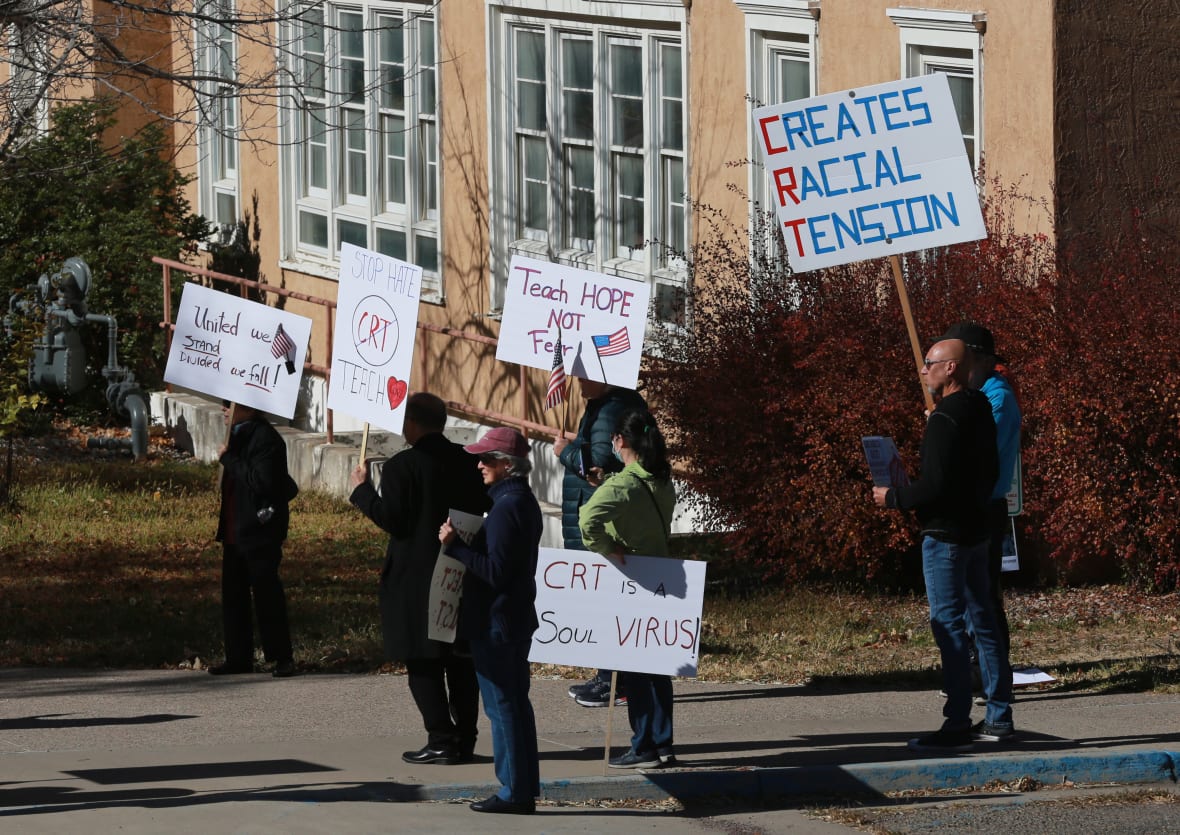Black History Month shines light on efforts making it harder to discuss race in schools
At least 42 states have passed or introduced legislation containing restrictions.
This year, Black History Month has taken on added significance.
The month, which honors the achievements of Black people in American history, has shined a light on restrictive laws that make it harder for teachers to talk about race in school. Liberal lawmakers throughout the country have criticized these laws as efforts to placate white conservatives who want to gloss over the country’s past.
White parents, though, have demanded that local school boards pare back discussions on race because they don’t want their children to feel bad.

The effort to squash the discussion of race in school has had success. At least 42 states have passed or introduced legislation containing restrictions on talking about race, according to Education Week, which keeps a running total of the effort. The restrictions affect teachers from kindergarten through college.
“The current classroom censorship efforts are an unprecedented attempt to silence discussions and instruction about systemic racism and oppression in this country,” Leah Watson, a senior staff attorney with the ACLU’s Racial Justice Program who focuses on classroom censorship efforts, told theGrio.
Most of the laws contain nebulous language that can cause confusion. As per Education Week, examples include:
• In Alabama, educators can’t teach “concepts that impute fault, blame, a tendency to oppress others, or the need to feel guilt or anguish to persons solely because of their race or sex.”
• Georgia prohibits schools from teaching “divisive concepts.”
• Kentucky passed a law that mandates schools to teach that “defining racial disparities solely on the legacy of [slavery] is destructive to the unification of our nation.”
Florida is one of the states at the forefront of clamping down on discussions about race. Just as Black History Month was about the start, the Florida Department of Education rejected an African American Studies course in the College Board’s Advanced Placement curriculum, claiming it “lacks educational value.” The move came after Florida Gov. Ron DeSantis said he would bad the curriculum.
Under pressure, the nonprofit College Board, which oversees the AP test, relented and pared back some of the curriculum by removing references to Black Lives Matter and Black feminism, among other topics.
DeSantis’ office didn’t return emails or calls seeking comment on its objections to the AP material.

Brandt Robinson, a Pinellas County, Florida, high school teacher, told theGrio, “To me, that’s pretty naked and blatant racial bigotry, but this is where we are.“
On the high school level, teachers have so much curriculum to get through that they can feel pressure to cover it all so students can do well on their standardized tests, Robinson said.
There’s not much time left for an actual Black History Month discussion, he noted.
Still, any teacher who might want to delve into a Black history topic, whether it be in February or any other time, might be hesitant to do so given the penalties, which can include being fired.
“A teacher who feels like, I’m going to do a lesson about Black History Month, would be very cautious about the subject matter they’re bringing up,” said Robinson, who also serves on the Human and Civil Rights Committee of his teachers union. “Most teachers wouldn’t discuss the summer of 2020 and the incidents surrounding George Floyd’s death. Instead, they’re more likely to go to a safe example, like Martin Luther King Jr.”
Self-censorship is also pervasive at the college level.
The ACLU represents six Florida professors challenging provisions of the state’s Stop W.O.K.E. Act, which limits discussions on race at public universities.
The professors “overwhelmingly told us that there is a culture of intimidation and fear on campus, and they are faced with a hard and impossible decision,” the ACLU’s Watson said. “They’re in a bind where they either can teach to the standards of their academic discipline, risk violating the law, or censor themselves.”
The fear and self-censorship can be felt in states that haven’t passed restrictive laws but have tried. For example, in Ohio, lawmakers have twice tried and failed to prohibit discussing “divisive and inherently racist concepts.”
The history, though, is the history.
“Learning about African American history as part of giving a comprehensive and truthful account of our country’s history is beneficial for all students,” Watson said.” It’s not only beneficial for Black students or students of color. All students deserve to learn, free from censorship.”
TheGrio is FREE on your TV via Apple TV, Amazon Fire, Roku and Android TV. Also, please download theGrio mobile apps today!


